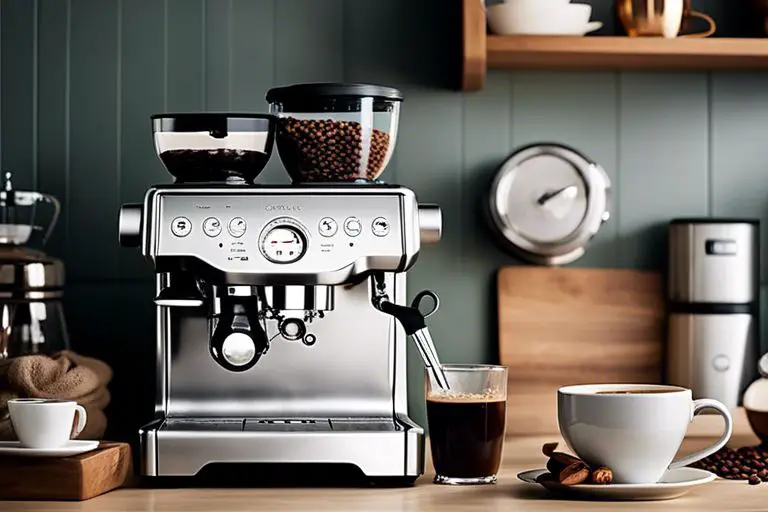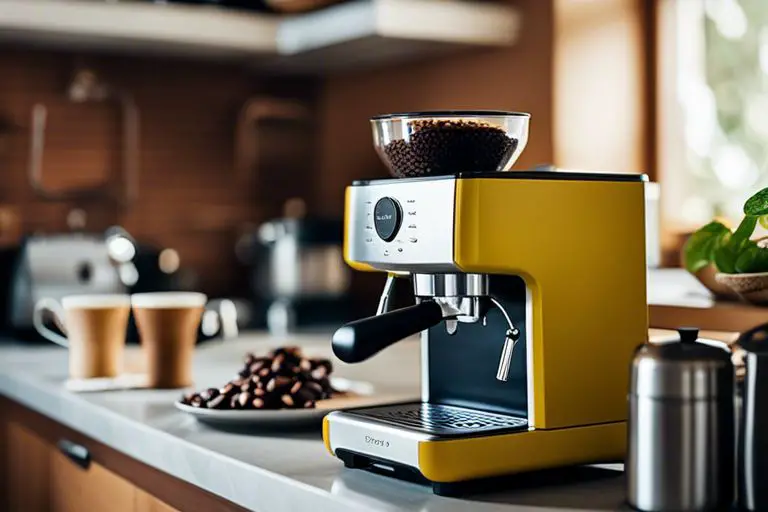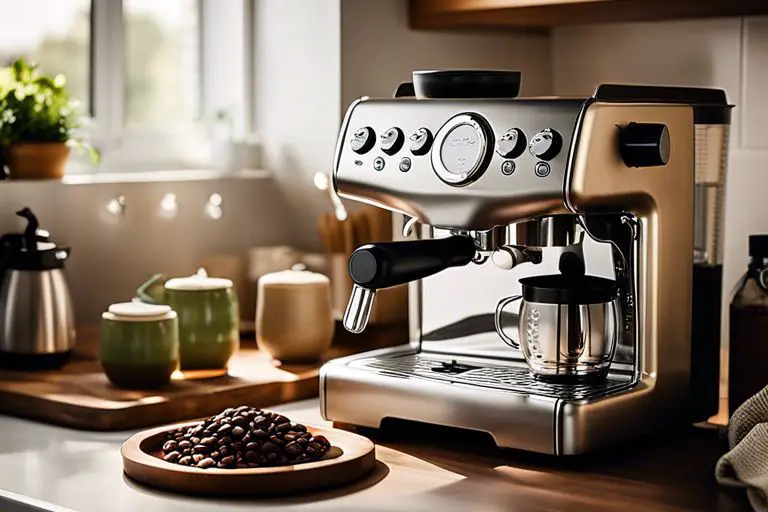Caffeine in coffee is a stimulant so if coffee can cause anxiety then that is likely to be where the problem lies. Too much caffeine can cause you to feel on edge and can easily be mistaken for anxiety caused by coffee.
If you do suffer from anxiety then it is absolutely correct to try and identify the things that are causing you to feel anxious so that you can try and eliminate them and alleviate the feelings that are making you uncomfortable.
Over two billion cups of coffee are consumed worldwide every day and it has been proven through very detailed scientific studies to provide benefits far wider reaching than just the temporary caffeine hit.
When you look at the studies conducted with millions of people over the very long term it shows that coffee is good for you overall and there is nothing to suggest that coffee is responsible for anxiety.
Here is a more detailed article that explains the benefits of coffee with links to scientific studies:
However, everyone is different and it is certainly not out of the question that caffeine in coffee may affect you in an unpleasant way if you already have regular feelings of anxiety.
How much caffeine in coffee can cause anxiety?
Tea and coffee are the most consumed drinks in the world and they both contain caffeine.
That makes caffeine the most used drug in the world. Most people would not consider caffeine to be a drug but the definition is clear:
“A medicine or other substance which has a physiological effect when ingested or otherwise introduced into the body”
Caffeine is naturally found in coffee and it varies based on many factors such as the coffee beans themselves and the way you take your coffee.
You don’t need to worry about overdosing on caffeine by drinking coffee because you would need to consume around 24 litres of lattes quickly for it to be a problem.
On average you are looking at about 100mg of caffeine in a cup of coffee and the way that affects each individual person is unique.
This article explains in detail how much caffeine is in coffee broken down by the way you brew your coffee to help you understand if you should consider cutting back:
Can you drink too much coffee?
Change the way you consume coffee
Because coffee is woven into the fabric of society we tend to consume it as a subconscious habit that we just do on autopilot every single day, multiple times a day.
The same as you eat 2 or 3 meals a day every day without fail the same applies to coffee.
Most people will have a coffee (or two) within the first hour of being awake and it may well be the first thing you drink every morning.
That’s exactly what I used to do. I’d drink nothing when I woke up and then before I left the house to go to work I’d grab a quick coffee from my Nespresso machine and then I’d get another one from Starbucks to drink at my desk.
Although the water in coffee does contribute to your daily water intake it’s not enough to give you the level of hydration required to give you a 100% level of alertness.
Here is an article that explains more about coffee and dehydration:
If coffee is the first thing you drink in the morning then you get the benefits of the energy boost from caffeine but its only temporary and wears off within a few hours.
If you think that coffee may be giving you anxiety then try replacing the first cup of coffee in the morning with a large glass of water.
Most people don’t realise how dehydrated you become during the 7 or 8 hours that you are asleep each night.
I now drink a large glass of water within 5 minutes of waking up and when I compare that to drinking a cup of coffee instead, I noticed a very significant difference.
The difference was that I had a sustained level of energy and concentration levels for longer rather than just an hour or two right at the beginning of the day.
It’s certainly worth a try because the better you feel the less anxious you are going to be.
It doesn’t mean that I drink less coffee it just means that I don’t drink it first thing in the morning.
I have 3 or 4 during the day and then I always call it a day by 4 pm latest.
The last thing I want to do is make myself anxious about not being able to get to sleep.
I go to bed at about 11 pm and 7 or 8 hours is plenty of time to make sure that the caffeine in my body is gone.
If you find that you can’t get to sleep when you go to bed and your brain is racing with all the thoughts of life and that causes you anxiety then stop drinking coffee earlier in the day.
Having caffeine in your body will stop you from getting to sleep. Try not drinking any coffee 8 hours before you go to bed and that could help you sleep better and reduce anxiety levels.
Can coffee cause stress?
If you are a naturally stressful person then you will know the symptoms of stress.
Physical signs of stress can include a faster heartbeat and changes in behaviour such as not being able to get to sleep and then not getting enough sleep can also be stress related.
If you have any of these symptoms then drinking coffee with caffeine could potentially add to the problem.
Caffeine will temporarily increase blood pressure and your heart rate as part of the energy boost that it provides.
If these things are already happening to you anyway then it may not be a good idea to compound the situation with lots of caffeine.
If you love coffee but you think the caffeine may be having an adverse effect on you then there is a solution. Decaffeinated coffee.
Can decaf coffee help with anxiety?
It’s the caffeine in coffee which is effectively the active ingredient that stimulates your body and potentially induces unwanted stress and anxiety so if you take the caffeine out it could be exactly what you are looking for.
Decaf coffee isn’t very popular not because it doesn’t taste good but because one of the main reasons people drink coffee in the first place is to get the energy boost that regular coffee provides.
It’s a myth that decaf coffee doesn’t taste good. To prove it, all you need to do is order a decaf coffee and a regular coffee the next time you are at a coffee shop and get someone else to hand you each cup separately without telling you which is which.
There is no way to tell the difference as caffeine diluted in coffee is tasteless. Pure caffeine has a bitter taste but that’s not applicable in coffee as it is diluted to the point that is doesn’t taste of anything.
If coffee does give you anxiety then it is almost certainly the caffeine that’s doing it and its nothing to do with the rest of it and if it doesn’t affect the flavour which it doesn’t you have nothing to lose by giving it a go.
It’s important to know that decaffeinated coffee is not completely caffeine-free.
The process of taking the caffeine out of coffee removes between 97% and 99.9% of the caffeine depending on the method used to take the caffeine out.
Here is an article that explains a lot more about decaf coffee:
If you have an intolerance to caffeine then its best to steer clear from coffee altogether even if it is decaf coffee.
Conclusion
Coffee certainly will not agree with everyone and the stimulant effect that the caffeine provides may not be great if you are already prone to anxiety or stress.
For the vast majority of people coffee will not be a contributor to anxiety but if you have any personal concerns that it might be affecting you then cut down on your daily intake.
If you drink 4 cups of coffee a day, drink 2 instead and if you drink 2 then try drinking only 1.
Alternatively, you could continue drinking the same number of cups but switch half of them to decaf or even switch completely to decaf.
As mentioned above, I personally noticed a big difference when I replaced my coffee first thing in the morning with a large glass of water to immediately rehydrate myself after no liquid intake for 8 hours.
Coffee is about more than just drinking it every day. It has become an integral part of the society we live in. A coffee shop on every corner is proof of that.
By applying some of these tips you can continue to enjoy coffee the same as you always have without fear of it contributing to anxiety.





